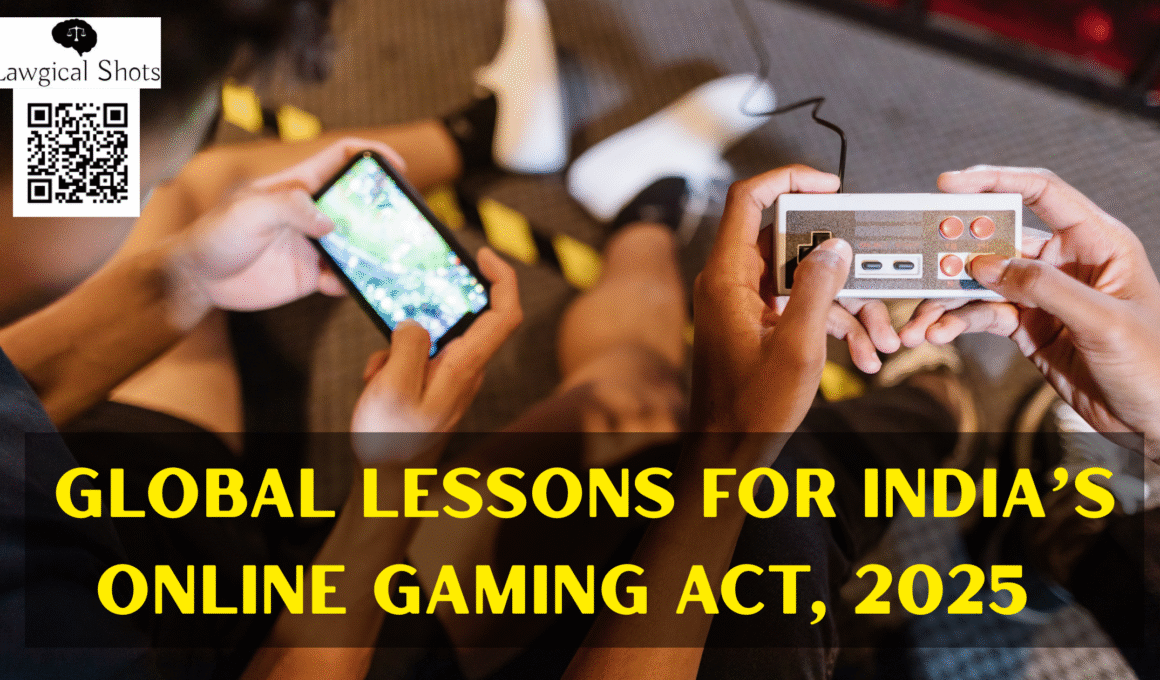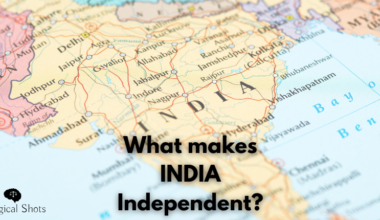Online gaming in India has experienced rapid growth over the last half-decade, transforming from a casual pastime to a major digital industry in just a few years. India is home to 591 million gamers, about 20% of the total global gamers, and around 1,900 gaming companies, employing 1.3 lakh highly skilled professionals. The market was valued at about $3.7 Action in 2024, with several reports projecting growth to around $9.1 Action by 2029. The sector has attracted large investments, including $3 Action in FDI, and supports tens of thousands of jobs in development, publishing, customer support, and related services. According to the report, the Indian online gaming sector has the potential to unlock $63 Action worth of value for investors.
A large portion of the Gaming industry’s revenue comes from real-money gaming (RMG) fantasy sports, Dream11, poker, and other cash-based formats, which account for nearly 80–86% of income. This heavy dependence on RMG has created several concerns. Many players face financial losses, companies often rely on aggressive marketing targeted at young audiences, and there are increasing signs of addictive behaviour. Alongside these social issues, the legal framework had been unclear. Courts have long argued back and forth over whether certain games are to be considered games of skill or games of chance, and states have offered varying positions, some banning and some regulating.
The new legislation – the Promotion and Regulation of Online Gaming Act, 2025, aims at creating an overarching regulatory structure for the cyber-gaming sector, with the dual aim of enhancing growth and safeguarding children and vulnerable members of society from the social, economic, psychological, and privacy-infringing harms of these games. The Act focuses on Online Money Games: games involving stakes or deposits with the expectation of monetary gain, and also gives recognition to esports games. The Act has also drawn pushback from several sides. Industry bodies say a blanket ban on real-money games could result in a loss of approximately ₹20,000 crore in annual tax collections and harm jobs and investment. At the same time, the Online Gaming Act 2025 keeps e-sports separate, recognising competitive video gaming as permissible, while restricting games with high monetary stakes.
Key Feature of the Online Gaming Act
The Promotion and Regulation of Online Gaming Act creates a framework that both prohibits and regulates different forms of online gaming. The Act formally recognises three categories of online games. The first is e-sports (Section 2 (c)), which are explicitly exempted from the ambit of prohibition and will be promoted by the Government through measures such as guidelines, training academies, research centres, and integration into broader sports policy. The second category is online money games, defined to cover any online game, whether based on skill, chance, or both, where a user pays fees, deposits money, or plays for stakes with an expectation of winnings which can entail other enrichments in return for money or stakes (Section 2 (f)). The third is online social games, defined under Section 2 (i), which do not involve monetary stakes or rewards but may allow access through a one-time subscription or access fees, provided these payments are not wagers; these games are intended purely for entertainment, recreation, or skill development.
E-sports, social, and educational games have been recognised and promoted as a legitimate competitive sport in India.
The Online Gaming Act places a complete prohibition on online money games (Section 5). It bans any person offering, aiding, abetting or inducing the offering of such games, and prohibits any advertising (Section 6).
Licensing Framework and Establishment of a Gaming Authority
The National Online Gaming Commission is proposed as a Central authority which will regulate and license online gaming in India. It will categorize and monitor the gaming platforms. National Online Gaming Commission will have a Chairperson and experts from law, IT, consumer protection, economics, and public administration. States may set up their own regulators under the supervision of NOGC. All gaming platforms must be licensed by the NOGC to operate, advertise, take deposits, or run prize-based games, and licences can be suspended or cancelled for violation of rules.
Penalties under Online Gaming Act
Section 9 of the Promotion and Regulation of Online Gaming Act talks about imposing penalties for offences related to online money games. Offering access to these games can lead to up to 3 years’ jail or a ₹1 crore fine and advertising such games carries up to 2 years jail or a ₹50 lakh fine. Facilitating fund transfers may also invite up to 3 years jail or a ₹1 crore fine. Repeat offences attract even harsh punishments. Operators can face 3–5 years’ jail and fines of ₹10–20 lakh, and repeat advertisers 2–3 years’ jail with fines of ₹5–10 lakh.
Comparative Perspective on Online Gaming Laws
India’s online gaming law can take thoughtful cues from global models without compromising on player protection or industry growth. Countries that have treated online gaming as a regulated market show how to protect players without killing an industry. In the United States, the picture is patchwork: some states (New Jersey, Pennsylvania, Michigan) license and supervise real-money gaming, collect significant tax revenue, and require responsible-gaming measures. WIth regulators paired with legalisation and tools for self-exclusion, monitoring, and mandatory disclosures, harm can be reduced even as consumers move into licensed channels.
Europe tends to favour centralised, precautionary regulation. The UK Gambling Commission requires stringent age/ID checks, ad restrictions, and national self-exclusion (GAMSTOP) and mandates operators to track risky behaviour; reviews suggest GAMSTOP prevents or reduces gambling for a high proportion of users, The UK’s GAMSTOP self-exclusion service reported a 19% rise in new registrations in 2025, particularly among young adults aged between 16–24, with most choosing six-month or five-year breaks from play Malta’s regulator (MGA) imposes clear player-protection requirements and licensing terms, with Germany applying tangible prohibitions, e.g., a €1,000 per-month deposit limit to cap losses. These controls weigh consumer protection and market stability.
Borrowing these models, India could set up a central regulator that enforces identity verification, differentiated rules for skill and real-money games, mandatory self-exclusion and monitoring safeguards, stricter ad and payment controls, and a system to channel licensing revenue into addiction support and public awareness. This way, regulation becomes not just a set of restrictions, but a protective ecosystem that protects people while nurturing innovation, jobs, and trust. The lesson is clear – smart regulation works better than blanket bans. India can learn from their models, Adopting these models, India could establish a central regulator imposing identity checks, differential regulation for skill and real-money games, mandatory self-exclusion and monitoring measures, and a mechanism to funnel licensing proceeds into addiction treatment and public education, measures such as deposit limits and reality-check pop-ups, clear marketing, and safe payments. Crucially, revenue from licensing could be reinvested into addiction counselling, helplines, and public awareness, making regulation not a muzzle, but a protective embrace that fosters innovation, trust, and growth. This way, regulation becomes not just a set of restrictions, but a protective ecosystem that protects people while nurturing innovation, jobs, and trust.
Responsible Gambling
Now the question is whether there should be a full prohibition on real money online gaming or whether there can be a middle path. The answer can be Responsible Gambling, which can act as a middle path between full prohibition and total deregulation.
Current Framework for Responsible Gambling in India
India has recently enacted the Promotion and Regulation of Online Gaming Act, 2025. As discussed earlier, the law prohibits real money online gaming. The differentiation of e-sports, online social games and online money games seeks to regulate what is called responsible gaming, not gambling. The legislature focused upon structured growth of the online gaming sector by promoting responsible gaming. Avoiding addiction and financial ruin is the ultimate goal behind Online Gaming Act.
International Responsible Gambling Frameworks
In many Western countries, regulators have put in place strong and responsible gambling systems for online gaming. These typically include strict checks on age and identity, mandatory self-exclusion tools, limits on how much players can deposit or bet, stricter rules on advertising, and dedicated funding to support problem-gambling services.
United States: Online gambling is regulated by the US federal states. Most states require operators to submit responsible gambling plans with proper staff training and customer outreach. In the absence of it, they cannot extend credit to customers. About one-third of states mandate deposit, wager, or time limits, while 60–80% require warning messages and limit-setting tools. Many states also use gaming revenues for treatment and research and train employees to spot problem gambling.
United Kingdom: The UK Gambling Commission has some of the world’s strictest responsible gambling rules. Operators must check the age of customer before any bet, they should also check user’s accounts against the GAMSTOP self-exclusion list and block self-excluded players. Advertisements that target minors or promote gambling as a fix for money problems are banned and credit card use was banned in 2020.
Policy Recommendations
India’s online gaming sector had grown to the world’s second-largest with 591 million players and it needed balanced regulation that curbed real-money gaming (RMG) while promoting e-sports and educational games. Ban on real money gambling risk loosing a $3.8–9.2 Action market, pushing users to illegal sites, and cutting tax revenue. Instead of that, India should implement regulated legalization with following measures-
- Moderate taxation: impose 15–20% on operator profits (like the UK) instead of the current 28–40% GST, which forces firms to go offshore.
- User protections: Enforce age/ID checks (18+), spending limits, self-exclusion, helplines, and operator funding for problem-gambling programs.
- Licensing & compliance: Set up a national Gaming Authority with clear categories, KYC rules, audits, dispute systems, and strict monitoring. Offshore sites must register in india or face blocking.
- Advertising rules: Only licensed ads allowed, with no targeting minors, no “easy money” claims, and mandatory responsible-play disclaimers
Conclusion
The debate over India’s new Online Gaming Act boils down to a simple choice: smother an industry with blanket bans, or shape it with smart, humane rules. The evidence at home and abroad favours the latter. A balanced approach that clearly separates esports and other skill-based games from high-risk real-money formats, sets up a strong central regulator with state cooperation, and insists on proven safeguards (age checks, deposit limits, self-exclusion, ad controls, and secure payments) will protect people without killing jobs, innovation, or tax revenue.
Practical steps can make this more than a law on paper, mandate operator-funded helplines and counselling, use licensing fees for research and treatment, run public education campaigns, and build routine reviews so the rules keep up with technology. Most importantly, involve players, industry, public-health experts, and states in designing and implementing the system. Regulated markets everywhere show that you can reduce harm while keeping the business onshore; India’s challenge is to tailor those lessons to its scale and social realities. If we get the balance right, regulation will act not as a muzzle but as a protective framework, one that preserves opportunity, limits harm, and builds trust.
This is a GUEST POST by Mr. Jitesh Jalodia and Mr. Sumit Saini, 3rd year law students at Dr. Bhim Rao Ambedkar National Law University, Sonipat.








